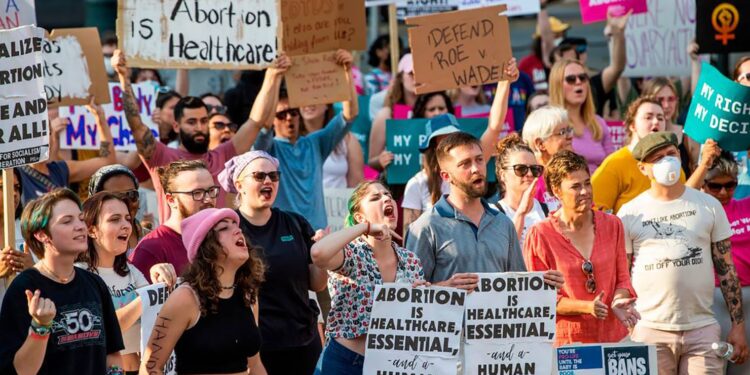South Carolina legislators have introduced a sweeping new proposal that would outlaw nearly all abortions in the state, stripping away long-standing exceptions for rape, incest, and fatal fetal conditions, while imposing harsh criminal and civil penalties on doctors and others who assist patients.
The measure, known as the Unborn Child Protection Act (Senate Bill 323), represents one of the most far-reaching state-level restrictions since the U.S. Supreme Court overturned Roe v. Wade.
Under the bill, abortion would only be permitted when the mother’s life is in immediate danger, and even then, only under strict circumstances. Violations could result in felony charges carrying up to 30 years in prison. Physicians who perform or assist in abortions could also face suspension or loss of their medical licenses, civil lawsuits, and even prosecution under racketeering laws if linked to a “pattern” of abortion-related activity.
Those who share information about abortion access or direct patients to out-of-state clinics could also be criminally liable.
“This bill is dangerous beyond anything we’ve seen before,” said Amalia Luxardo, CEO of the Women’s Rights and Empowerment Network. “It doesn’t just ban abortion, it criminalizes doctors, censors information, and invites lawsuits against anyone who helps a pregnant person.”
Redefining State Abortion Law
The legislation rewrites key parts of South Carolina’s abortion code, redefining life as beginning at fertilization rather than viability. Exceptions currently carved out for minors, survivors of rape and incest, and cases of fatal fetal anomalies would be eliminated.
Even during emergency deliveries after 19 weeks, doctors would be legally required to make efforts to preserve the fetus’s life, regardless of medical outcome.
Penalties outlined in the bill include:
• Up to 30 years in prison if an abortion results in the fetus’s death.
• Up to 25 years if the fetus survives.
• Civil lawsuits for wrongful death on behalf of the fetus.
• Loss of medical licenses for providers.
The legislation also includes a wrongful death clause, allowing relatives to sue on behalf of an unborn child, a move seen by legal experts as advancing the concept of fetal personhood in state law.
Education and Enforcement Provisions
The proposal extends beyond healthcare. Starting in the 2026–27 school year, public schools would be required to include a state-approved human development curriculum featuring a three-minute animation called “Meet Baby Olivia,” which depicts fertilization and fetal growth.
School districts that fail to comply could face lawsuits brought by the Attorney General.
Political and Legal Fallout
South Carolina already enforces a six-week abortion ban, but Senate Bill 323 would push restrictions dramatically further. Critics say it could also chill free speech and limit online organizing and education related to reproductive health.
“This bill would criminalize medical care, invade our privacy, and place unconstitutional restrictions on speech, travel, and association,” said Courtney Thomas, Advocacy Director of the ACLU of South Carolina. “Any lawmaker who cares about the health and safety of South Carolinians should fight to stop this bill.”
It remains unclear whether the legislation has enough support to clear both chambers or if Gov. Henry McMaster, a Republican who has signed past abortion restrictions, will endorse it. If approved, the law would take effect immediately upon his signature.







